Our high school Young
Authors Contest winner for this issue is Selina Cifelli, a secondary V student
at Laval Senior Academy. Selina had the
opportunity to sit down with CBC’s Sabrina Marandola for a one-on-one interview.
Q; As you
are a CBC TV and radio news reporter as well as a weather presenter, what are
the positive and negative aspects of your job?
A; The positive aspects would be
that everyday isn’t alike, you never know where you’re going to be, what you’re
going to be doing, who you’re going to meet—people who you would never have
access to any other way. It’s a job that opens up so many doors and you cross
paths with people that you would never meet in your everyday life. The negative
aspects would be [that] since it’s unpredictable it can be very hard to plan
things in your day-to-day life. For example, if you’re out on the field
reporting you’re there until it resolves itself. You have to expect the
unexpected!
Q; What is
your current position at CBC?
A; Now, I am a web writer for cbc.ca/montreal, however
I also do fill in work if people are on vacation or people are sick so I’d do the
weather, anchor, recording or news reading…All depending on vacation time and
who’s away, so basically my schedule is always shifting.
Q; Knowing
what you do now, would still choose this career as a job?
A; I think I still would, actually,
because it has changed a lot. From when I was in university to reality now,
shooting [video] with a smartphone was nonexistent. I think your personality
has to be easy-going, you have to be flexible, adaptable, someone who learns
quickly so for that, I love it. I am never bored and everyday I’m learning
something new…Also, I love the relationship with the viewers and the listeners!
You hear people’s feedback and with that you can make a difference. I really
like it!
Q; What do
you have to say to anyone who would like to become a journalist?
A; I would say get ready to hustle!
It’s hard work but don’t be shy, go for it, give it a shot, then see what comes
with it! There are many different branches of journalism so with that I would
say to be open-minded to many different positions but always remember at the
end of the day, it’s always about the people and their stories. Get out there
in the community, get to know people, be connected, be a good listener and read
a lot!
Q; Have
you been in any dangerous situations while covering a story?
A; I wouldn’t say dangerous but
I’ve been in a lot of protests. With a protest, you never know if one will get
violent. I’ve been at protests where
suddenly rocks are being thrown but I never really felt endangered. I have been
in a situation where tear gas was thrown, but luckily I was in the opposite
direction that this had occurred.
Q; What or
who inspired you to become a journalist?
A; In grade 3 at my school they had
public speaking competitions and the teacher had said, “Everyone has to do an oral
presentation.” I went home that night and my project ended up being about
dinosaurs. The teacher had asked who wanted to go first, I was looking around
and everyone seemed nervous but I hadn’t understood how speaking in front of a
group could make someone nervous; to me that was a foreign concept. I ended up being
the first to present. My teacher ended up selecting me to go to the competition.
That’s when I realized I actually liked speaking in front of people and that
got me thinking, if this is something that’s so scary to other people but so
natural to me, maybe there’s a career here!
Q; How did
you become familiar with the world of journalism?
A; I had no contacts in the
industry! I honestly just became familiar with it from my studies. I went to
Concordia and I studied Communications in Journalism, a Joint Specialization
Program, I did internships, I worked hard and that’s how I learned. You learn
as you go! Until you do the field, or you are stuck in the middle of a riot, like
when I reported the Dawson shooting…School cannot prepare you for a Dawson
shooting. News happens, amazing
stories happen, tragedies happen and you learn as you go!
Q; What
challenges did you encounter to get to where you are in your career, presently?
A; Challenges? I don’t know about
challenges… it’s just a lot of work, putting in many hours but I am very
thankful that we live in a society where more often than not, hard work is
rewarded. It’s not who you know or who you are connected to, it’s if you work
hard and you’re talented, you improve your skills and eventually you will get
to where you want to be! Working so hard wasn’t a challenge but more what I was
expecting over time.
Q; How did
you achieve working for CBC?
A; Working hard. Starting off small
then growing and getting bigger and bigger. I also did a lot of freelancing on
the side. There was a period in my life,
about four to five years, where I had three jobs at the same time. I started
off in print, working for The Suburban and I was the sole writer for the
East End Edition, for about two years. I then went into broadcasting which was
always my true love. I worked at a 24-hour radio station; I learned how to do
live broadcasting from that job. You never knew when you would be called into
work, so I had three jobs, one of them being a producer for an Italian
television show called Ciao Montreal and at the same time I was (and
still am) a writer for Panorama Magazine. Many people had gotten laid
off from the radio station when it shut down and that’s when I started at CBC.
Q; How did
you learn to keep your emotions intact to keep your reporting unbiased at all
times?
A; Often when you tell a story, of
course you’re human and if you’re at the scene of a fire with a family who has
now lost their home, of course you feel for that family. You’re there to get
the people’s voices and stories heard. When you’re there and are trying to find
different angles of the story, you’re pretty much going about it in a non-emotional
way. Emotions are mostly used to connect with our viewers to see what will tug
at the viewer’s hearts. It is not to reveal your emotions on the air; it’s to
reveal someone else’s emotions that come with the story.
Q; Is
there any story you won’t or choose not to report or cover?
A; I’ve never been in that
situation but I think if there is a story that involves someone you know, then
you can’t cover that story because of conflict of interest. Otherwise, I’ve had
some colleagues who are allergic to animals and if there is a story at the
SPCA, they can’t do that story because of it. I mean, would I ever do a story
on tarantulas? Probably not!
Q; Of some
of the main news stories of last year or this year, which would you have liked
to cover and why?
A; The whole American presidential
election! It could’ve been fun to cross the border and spend some time with our
fellow American friends on election night. Also, I really wanted to cover the
nomination of Pope Francis in Rome because that is history in the making…Also
anything rooted in Italy—I am very connected to the Italian community!
Q; Out of
all the places you’ve traveled, which was your favorite?
A; I love Italy! I try to go to
Italy at least every year. A lot of my
relatives are in Italy, we are very close and thanks to technology, I
communicate with them, they know what I had for breakfast, lunch and supper!
There’s not a specific region in Italy that I prefer but I am a pizza addict so
I need to be around Italian culture for about two to three weeks every year.
Q; Are any
former or current journalists a direct source of inspiration for you, or anyone
else for that matter?
A; I’ve been so blessed and I’ve
worked with amazing colleagues. I literally worked in a newsroom where people
had more years seniority at CBC than I’ve had on planet Earth! That is such a
gift to be able to work with people who want to coach you and when you work
with them, you learn so many things just by watching or just hearing how they
interact with people and that is invaluable! I worked on the morning show with
Denis Trudeau, who used to be an anchor at CBC. I learned so much from him and I had so much
fun working with him. Then just personally, my mother. She’s my compass, she
keeps me in check and sometimes for stories I ask myself, what would my mom
think of this?
Q; Was
journalism your ideal occupation or was there another field that you were
interested in, initially?
A; It was always journalism since
the beginning, for me. My second choice would’ve been to become a teacher because
you’re still speaking in front of a group, I love working with teenagers and I
participate in career days all the time! I just love talking to young people so
I think that would be my second choice.
Q; What
has been the most shocking story you have ever covered?
A; I’ve covered the Luka
Magnotta trial. Just those circumstances
was a horrific story that you would never hear of.
Q; As a
journalist, what are the sets of codes or rules that you follow most often?
A; We have different codes or sets
of rules. You have the ones by law that you can’t break, such as if a minor is
involved in a crime, you can’t state their name…certain things in the court
you’re not allowed to report on. Then there are the more ethical rules that we
follow. We’ll never show a picture of someone who is dead if you can identify
that person. It’s not written by law but it’s an ethical rule we follow out of
respect. When you are reporting as well, you think about what you say before
you say it.
Q; Do certain
articles or topics come more naturally to you than others?
A; Yes, for sure. We can argue that
every story is about people but I really love where you can really dig deeper
and it’s a people story. It’s either a story or a profile on somebody who is
doing something amazing so it gives you a chance to get that one-on- one that
you normally wouldn’t have with that person. I love stories where there is a
motivation behind an action! For me, I’d rather talk about people than a sports
score. I always love number stories, for example, articles with statistics.
Q; Are you
personally impacted by any of the stories you’ve covered, either negatively or
positively?
A; There are some stories that you
really remember. For example, for Panorama Magazine, I interviewed a man
who was 102 years old. I remember everything about his house, what he was
wearing the day I met him and what he said to me. I mean, it stuck out so much
because when do you ever get to have a conversation with someone who is 102
years old? Sometimes you have really tough stories and those people do cross
your mind from time to time.
Q; How do
you prepare to write and submit an article?
A; Before I meet the person, I read
up on them as much as I can. I usually have a list of questions to ask them and
I have a point form of where I want to take the interview. I’m the type of
person where when I am prepared, I know I can relax and let the interview roll
itself. Once I am sitting down to write the article, I think, what were the
points that the person mentioned that stood out to me the most? What would my
next door neighbor find the most interesting about what this person had to say?
I get those points down and then I build my story around it, but the first sentence
is always the hardest! I can stare at a blank screen for at least 20 minutes.
Once that’s done, hopefully, everything comes together naturally.
Q; How
many times do you proofread your work?
A; My process has changed over the
years but what works for me is once I finished writing my first draft, I put my
laptop away for a few minutes and every time I go back I reread everything from
beginning to end. Once I am done, I close it and I never submit it the same
day, ever! I’ll go back to it within the next few days and I reread it again,
then that’s when you see what can be improved. When I reread it I’m looking for
if I’m bored or if a stranger were reading this, when would they stop reading
and turn the page? When you reread it within a few days of writing your first
draft, you look at it with a fresh perspective and then from there I proofread
and I do my editing.
Q; Do you
have any superstitions you abide by when covering a story?
A; No, I am not superstitious!

 In The Latest Issue:Latest Issue:
In The Latest Issue:Latest Issue:
- Celebrating Community an...
- Celebrating the Unsung H...
- Understanding Newborn St...
Articles
Calendar
Virtual- ANNUAL TEACHER APPRECIATION CONTEST
- APPUI LAVAL
- ARTS & CULTURE
- CAMPS
- CAR GUIDE
- CCIL
- CENTENNIAL ACADEMY
- CHARITY FUNDRAISING
- CITYTV
- COSMODÔME
- COMMUNITY CONNECTIONS
- COVER STORY
- DINA DIMITRATOS
- ÉCOLE SUPÉRIEURE DE BALLET DU QUÉBEC
- EDITORIALS
- ÉDUCALOI
- EDUCATION
- EMPLOYMENT & ENTREPRENEURSHIP
- FÊTE DE LA FAMILLE
- FÊTE DU QUARTIER SAINT-BRUNO
- FAMILIES
- FESTIVAL LAVAL LAUGHS
- FÊTE DE QUARTIER VAL-DES-BRISES
- FINANCES
- GLI CUMBARE
- GROUPE RENO-EXPERT
- HEALTH & WELL-BEING
- 30 MINUTE HIT
- ANXIETY
- CHILDREN`S HEALTH & WELLNESS
- CLOSE AID
- DENTAL WELLNESS
- EXTREME EVOLUTION SPORTS CENTRE
- FONDATION CITÉ DE LA SANTÉ
- GENERAL
- HEARING HEALTH
- MESSAGES FROM THE HEALTH AGENCY OF CANADA
- MENTAL HEALTH
- SEXUALITY
- SOCIAL INTEGRATION
- SPECIAL NEEDS
- TEENS
- THE NUTRITION CORNER
- THE NUTRITION CORNER - RECIPES
- VACATION DESTINATION
- WOMEN'S FITNESS
- WOMEN'S HEALTH
- HILTON MONTREAL/LAVAL
- HOME & GARDEN
- INTERNATIONAL WOMEN'S DAY
- JAGUAR LAVAL
- LAVAL À VÉLO
- LAVAL FAMILIES TV SHOW
- LAVAL FAMILIES MAGAZINE CARES
- LAVAL URBAN IN NATURE
- LE PARCOURS DES HÉROS
- LES PETITS GOURMETS DANS MA COUR
- LEON'S FURNITURE
- LEONARDO DA VINCI CENTRE
- LFM PREMIERES
- LIFE BALANCE
- M.P. PROFILE
- MISS EDGAR'S AND MISS CRAMP'S SCHOOL
- MISSING CHILDREN'S NETWORK
- NETFOLIE
- NORTH STAR ACADEMY LAVAL
- OUTFRONT MEDIA
- PASSION SOCCER
- PARC DE LA RIVIÈRE-DES-MILLE-ÎLES
- PÂTISSERIE ST-MARTIN
- PIZZERIA LÌOLÀ
- PLACE BELL
- PORTRAITS OF YOUR MNA'S
- ROCKET DE LAVAL
- SACRED HEART SCHOOL
- SCOTIA BANK
- SHERATON LAVAL HOTEL
- SOCIÉTÉ ALZHEIMER LAVAL
- STATION 55
- STL
- SUBARU DE LAVAL
- TECHNOLOGY
- TEDXLAVAL
- TODAY`S LAURENTIANS AND LANAUDIÈRE
- TODAY`S LAVAL
- WARNER MUSIC
- THIS ISSUE
- MOST RECENT
Magazine
The Life of a Journalist with Sabrina Marandola
Articles ~e 105,7 Rythme FM 4 chemins Annual Teacher Appreciation Contest Appui Laval Arts & Culture Ballet Eddy Toussaint Camps THIS ISSUE MORE...
CONTESTS Enter our contests
CONTESTS Enter our contests
CALENDAR
Events & Activities
COMMUNITY Posts Events
PUBLICATIONS Our Magazine Family Resource Directory
LFM BUSINESS NETWORK Learn more
COUPONS Click to save!
COMMUNITY Posts Events
PUBLICATIONS Our Magazine Family Resource Directory
LFM BUSINESS NETWORK Learn more
COUPONS Click to save!
SUBSCRIPTIONS
Subscribe to the magazine
Un-Subscribe
E-NEWSLETTER Subscribe to our E-newsletter Un-Subscribe
WRITE FOR US Guidelines & Submissions
POLLS Vote today!
E-NEWSLETTER Subscribe to our E-newsletter Un-Subscribe
WRITE FOR US Guidelines & Submissions
POLLS Vote today!
ADVERTISERS
How to & Media guide
Pay your LFM invoice
SUGGESTIONS Reader's Survey Suggest a Listing
LFM About Us Our Mission Giving Back Contact Us
SUGGESTIONS Reader's Survey Suggest a Listing
LFM About Us Our Mission Giving Back Contact Us
 PICK-UP LOCATIONS
Get a copy of LFM!
PICK-UP LOCATIONS
Get a copy of LFM!
TERMS & CONDITIONS Privacy | Terms
ISSN (ONLINE) 2291-1677
ISSN (PRINT) 2291-1677
Website by ZENxDESIGN


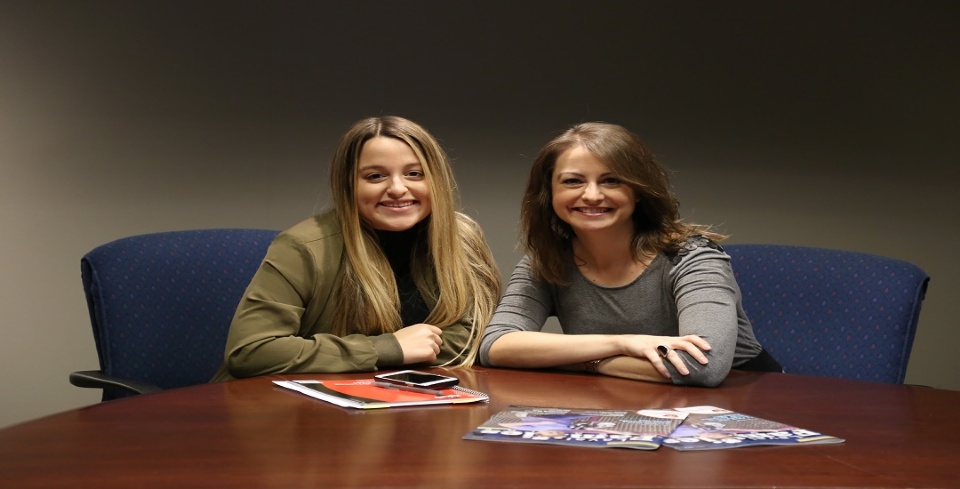
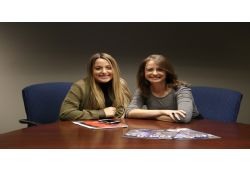
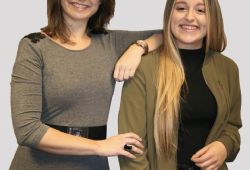
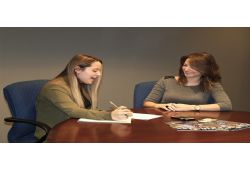
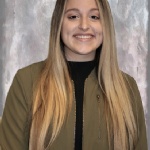 BY:
BY: 


Tweet
Share